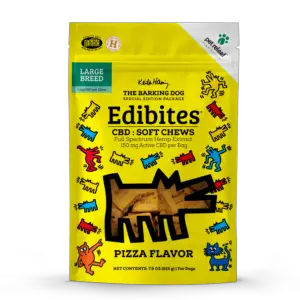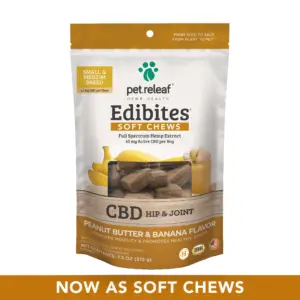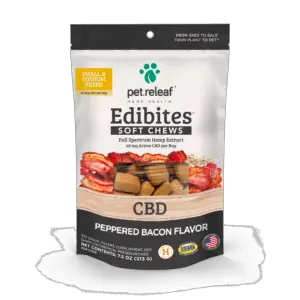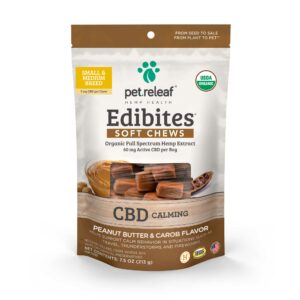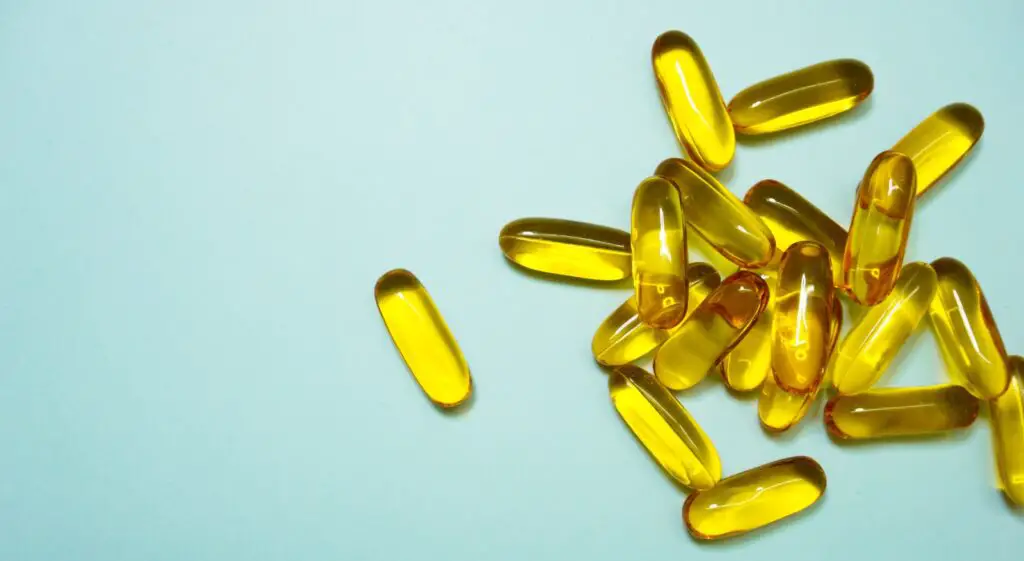
Key points
- The average lifespan of a dog depends on the breed and its living conditions. Smaller dogs tend to live longer than larger breeds;
- A balanced diet, plenty of exercise, physical care, emotional care, and regular preventive visits to the vet will help your dog live a long and healthy life;
- Dogs that are fed appropriately are less likely to suffer from diseases such as diabetes, obesity, or allergies. Thus, a proper diet is one of the most important factors in canine longevity.
There is no doubt that the length and quality of our lives depend on our lifestyle. The same is true for dogs. Of course, certain predispositions also play a role, but there are proven measures you can take to improve and extend your dog’s life.
Table of Contents
How Long Do Dogs Live?
Not all dogs have the same life expectancy, and therefore, not all of them age at the same rate. In particular, the breed and size of your pet determine when it will start being considered a senior dog.
When calculating the average life expectancy of dogs, vets look at different breeds in general. All dog breeds can be divided into three groups, namely small, medium, and large:
- Small breeds weigh up to 15 kg
- Medium breeds weigh 15 to 45 kg
- Large breeds weigh more than 45 kg
The rule of thumb is that the smaller the breed, the longer its life expectancy will be.
Thus, small dogs are not considered old until later in life. For example, breeds like Yorkshire Terriers are considered fully grown at twelve months, but they don’t become seniors until they are about ten years old. Conversely, large dogs like Great Danes are considered fully grown at two years old and old at five to six years old.
In general, large dogs mature later but then age much faster than small ones. If you have a larger dog, pay special attention to any loss of vitality – this may be the first sign that your pet is aging. Maybe it becomes quieter and calmer, less demanding, and starts to sleep more. You may also notice the first gray hairs in its coat. Your pet is also much more likely to gain weight during this time.
However, your dog is an individual that ages at its own unique pace that often cannot be defined precisely. As with humans, some dogs stay fit and active well into old age, while others become more sedentary over the years. Keep an eye out for signs of aging in your dog. A decline in vitality can also indicate a chronic illness, so if in doubt, always seek advice from your veterinarian.
Here are some other factors your dog’s life expectancy depends on:
- Living conditions
- Nourishment
- Dental health
- Care
- Castration or spaying
- Physical activity and mental stimulation
Things You Can Do To Extend Your Dog’s Life
The following tips can help your dog live a longer life, but above all, they can significantly improve the quality of life of your furry friend. This will ensure that your dog lives a happy and healthy life and accompanies you for as long as possible.
Feed Your Dog Healthy Foods
One of the most important things you can do to extend your dog’s life expectancy is to feed the pet a balanced diet and maintain its weight at a healthy level. The main task of any wholesome dog food is to provide pets with the energy and nutrients they need. However, it is worth keeping in mind that dogs have different needs than humans or other domesticated animals such as cats. You cannot just feed your dog human food or leftovers since many things that end up on your plate are poisonous to your dog. In addition, a dog’s diet should be adjusted to its age, weight, and living conditions.
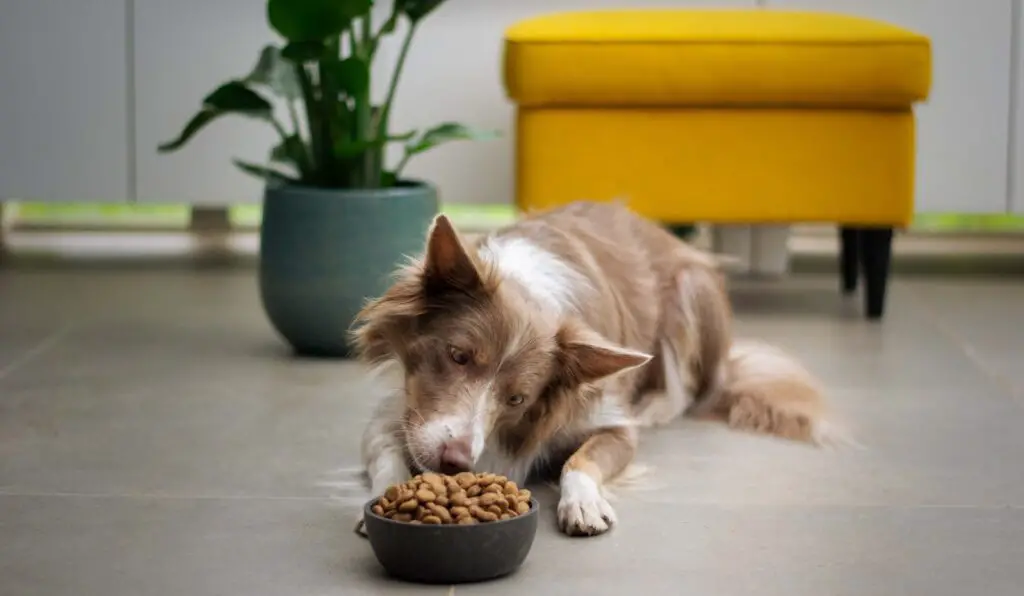
Feeding your dog a good-quality commercial diet may help your dog live longer. High-quality pet food must meet specific standards and contain all necessary nutrients. Trace elements, carbohydrates, vitamins, and especially protein and fat are essential components of dog food. All of them are necessary to enable your dog’s body to carry out vital functions. For example, protein contains important amino acids and is responsible for building and strengthening body tissue. Fats, fatty acids, and vitamins A, D, and K provide dogs with energy and enhance their immune systems. Vitamin E, manganese, and zinc are just some examples of naturally occurring antioxidants found in high-quality dog foods that can help support your aging dog’s natural body defenses.
One example of pet food that contains all the necessary nutrients to help your dog stay healthy is PetCan insect-based pet food. Nowadays, insect-based diets for pets are becoming more and more popular since they are natural and sustainable. In addition, the unique source of protein – insects, makes this food hypoallergenic and thus suitable for dogs with sensitive stomachs and a history of food allergies.
However, no matter what type of dog food you choose for your pup, it is important to find a reliable brand of food manufactured following all the quality standards. PetCan is one of these brands. Our pet diets are carefully formulated to meet all the nutritional needs of your pet. This food can provide your dog with vital animal-based protein while still being good for the Earth and not hurting other animals.
Give Your Dog Necessary Supplements
Antioxidants
Antioxidants, which are not only produced by the body but also ingested through food, play an important part in protecting the cells in both humans and dogs. These supplements neutralize free radicals inside our bodies. Free radicals are produced as part of your dog’s normal metabolism. However, their overproduction is harmful, as these molecules can speed up the aging process. They have also been shown to contribute to diseases such as arthritis and cancer by causing damage to the DNA.
A good canine diet should contain plenty of antioxidants, including vitamins E and C, beta-carotene, zinc, and selenium. In particular, vitamin E helps keep canine immune systems functioning properly and reduces damage to immune cells.
Probiotics

Keeping your dog’s digestive system healthy can extend your dog’s life. In addition to providing your dog with a high-fiber diet, you should consider giving it probiotics, which are essential for maintaining a healthy intestine. So choose foods that contain probiotic bacteria. This can include yogurt, kefir, or one of the commercial probiotic supplements, which will make your dog stay young longer.
Omega-3 fatty acids
Omega-3 fatty acids also have several benefits for canine health. For instance, they act as natural antioxidants and support healthy skin and coat. In addition, they contain DHA (docosahexaenoic acid), which is extremely important, especially for puppies, as this fatty acid supports optimal development of the nervous system. You should also supplement the food of pregnant and lactating dogs with DHA (but only after consultation with a veterinarian).
Glucosamine
Glucosamine (also known as glycosamine) can slow down your dog’s aging by promoting joint health. Glucosamine serves as a building block in the regeneration of cartilage tissue and inhibits inflammatory reactions. This stops further destruction of cartilage and often allows for the dose of pain medication to be reduced. The positive effects of glucosamine for the prevention and treatment of mild to moderate osteoarthritis have been proven scientifically.
Take Care Of Your Dog’s Skin and Coat
Skin is one of the most important organs in our furry friends’ bodies. Just like our skin, it protects our pets from external influences such as germs, parasites, etc.
Thorough and regular grooming can prevent most problems with your dog’s coat and skin from becoming serious. You can often tell that your dog is suffering from some health condition by the fact that its skin is damaged. For instance, skin issues can manifest themselves through thinning fur, bald spots, or flaky skin. The most common triggers of skin-related diseases are improper or poor nutrition, illnesses (unfortunately, cancer is becoming increasingly common in dogs), parasites, stress, allergies, hormonal problems, or even a combination of several of these issues.
Provide Your Dog With Physical and Mental Exercise
Regular training is essential to strengthening your dog’s physical and mental health and, therefore, extending its life. Dogs need plenty of exercise: they need to run, jump, sniff around, and discover the world to stay healthy and alive.

The amount of exercise your dog needs depends on many different factors such as its breed, age, personality, etc. For example, a greyhound will usually need longer and more extensive exercise sessions than a pug. Ideally, your dog should exercise at least half an hour a day to improve its health and regulate its weight over the long term. Interactive toys for mental stimulation are also recommended since they help to keep the pet’s mind fit. Participation in canine group sports is another example of great psychological and physical exercise for your pet. Dogs that lack physical and mental exercise can develop mental and physical illnesses.
All in all, you should always make sure that your dog gets enough daily exercise.
Get Regular Checkups and Vaccinations
It’s not a secret that prevention is the best treatment. Therefore, regular visits to the vet for a health checkup are of crucial importance for your dog. Since you cannot recognize many diseases on your own, it is vital to regularly take your pet to a vet to make sure that everything is fine with its health.
The vet will check the dog’s coat, skin, eyes, and teeth. And, if the specialist suspects that there may be an issue, they will initiate further examinations. Your dog’s vet may also advise you to make a change to the pet’s diet or prescribe medication. On-time vaccinations are also crucial. They are always carried out by a licensed veterinarian.
If you own a puppy, try to visit a veterinary clinic two to four times during the first year of its life. And if your dog is fully grown, one visit per year is generally enough.
Keep Your Dog’s Teeth Healthy
Just like you help your children brush their teeth and take care of their mouths, you need to do the same for your dog! Most dogs over three years old will develop oral diseases, which is why our pets’ teeth have to be regularly cared for and cleaned. Even if you feed your dog a healthy (at least for the most part) diet, dental hygiene is still very important.

There are many options to help provide proper canine dental care. For instance, you can find tooth care kits that include small brushes and toothpaste for dogs in your local pet store or online.
You can also supplement regular dental care with other natural methods that might prevent tooth decay. For instance, dried tendons, artificial bones, and dental sticks will not only provide great nibbling fun for the dog but also clean its teeth of dental plaque. Plus, the chewing movements will help strengthen your dog’s jaw muscles and help its gums get enough blood flow. This ensures all-around care for the entire chewing apparatus of your canine.
Give Your Dog Time to Sleep and Relax
Even though most dogs have lots of energy and love playing and running around, you should still give your dog a break from time to time. There should be a balance between playtime and exercises and the time your dog can spend on its own. Otherwise, the pet might find itself in a state of constant anxiety. Keep in mind that your furry friend needs to rest for around 15 hours a day. Of course, old dogs and puppies need to sleep a lot more. Additional rest phases during which the animal does not necessarily sleep are also crucial for recovery to help your dog have enough energy and stay healthy.
Social Contacts
Social interactions are also essential for dogs, as they are very social creatures. First of all, you need to pay enough attention to your pet, allocate time for playing, cuddling, and going on walks. This will help your dog stay happy for a long time. Secondly, you need to try to give your dog plenty of opportunities to play with other dogs. Your dog can acquire a high level of social competence through many stress-free encounters with other members of its species.
Final Thoughts
With love, support, and careful consideration of their needs, senior dogs can continue to enjoy exercise, social interaction, games, meals, and everything else that a dog’s life entails. By keeping your dog active, playing with it, enjoying your bond, and choosing a wholesome and balanced diet tailored to the pet’s age, size, and lifestyle, you can extend its life and help give the pet many happy senior years full of fun and vitality.
FAQ
How can I prolong my dog’s life?
Good genetics and a healthy lifestyle help dogs stay young longer and, therefore, live longer. Exercise, a balanced diet, a relaxed lifestyle with enough physical and mental activity, and regular checkups and vaccinations will help extend your dog’s life.
What shortens a dog’s life?
Obesity will shorten your dog’s life expectancy. Many studies have shown that overweight dogs don’t live as long as dogs with normal weight. In some cases, being overweight shortens their life expectancy by 2 years.
Do dogs live longer if they are loved?
There is a very special bond between a human and a dog, similar to that between a child and a parent. Affection, safety, attention, and love can promote a dog’s overall wellbeing and, thus, prolong its life.

